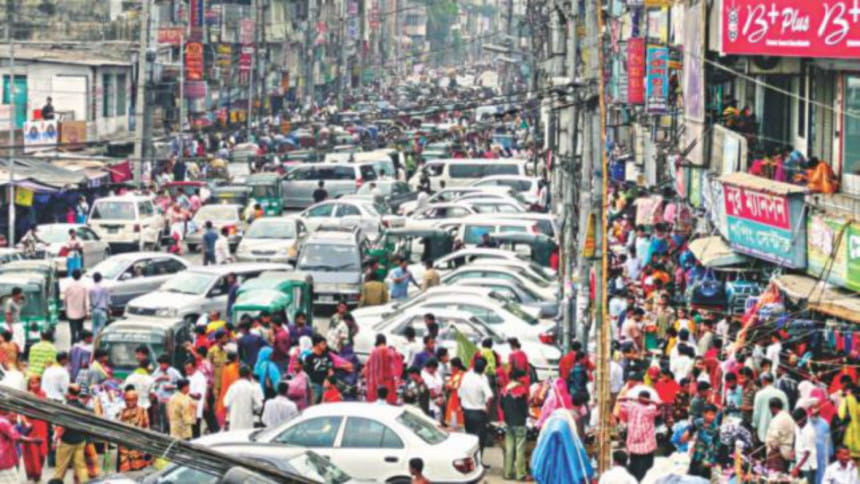Why we must plan for urbanisation now — and fast

The third annual conference on urban resilience was just held in Dhaka with well over 300 participants from home and abroad, including government officials, mayors, NGOs, researchers, the private sector and the media. This year a special competition was held and prizes given to some excellent practices of resilience-building in Bangladesh. The theme was "Building Climate Resilient Migrant-Friendly Cities and Towns."
The first point that came out of the discussion is the fact that Bangladesh is rapidly becoming an urbanised country but we are not prepared to cope with the challenges at the moment. Hence the highest priority should be finalising national policy—which still has not been adopted after many years—to guide urbanisation in Bangladesh. One of the first priorities in such a policy should be investing in developing cities and towns throughout the country in order to decrease the pressure on Dhaka city which still attracts the vast majority of rural-to-urban migrants.
The second point is to accept the fact that climate change impacts will increase the rate of rural-to-urban migrants, primarily from low-lying coastal districts. This needs to be anticipated with provisions of adaptation actions to help the people who live in climate-vulnerable areas. It also needs to be recognised that their children may not be able to live there in the coming decades. The first part of adaptation is to help the climate-vulnerable people to cope with the problems and the second part is to educate and help their children build their capacities in order to enable them to get better paying jobs in towns and bring their families with them when they wish. Thus we need to find ways to enable climate migrants to move with dignity and not be forced to migrate.
The third area of discussion was on the need to empower local decision-making, especially mayors of secondary towns as well as citizens of these towns. At the moment, Bangladesh is too centralised with lip service being paid to local empowerment but with little financial decision-making happening on the ground at the local level. The government should thus aim to put such practices into motion much quicker if we want urbanisation to take place in a planned rather than an unplanned manner as is happening now.
The final topic was raised by Professor John Carruthers of George Washington University who gave a clear warning to anticipate and plan for the impacts of the Padma Bridge which will connect the Dhaka and the Khulna regions. He made the point that while the bridge will have major benefits in allowing easier movement of people between the two regions, it may also have a potential disbenefit due to it putting more pressure on the Sundarbans which is the world's largest mangrove forest and a Unesco World Heritage site which Bangladesh is responsible for protecting and preserving. He suggested that we anticipate this potential problem and try to enhance the economic benefits from protection of the Sundarbans by promoting ecotourism as well as other ecosystem-based economic activities around the forest, rather than allowing industrial development there. We still have time to take these actions but once the industries are set up, we cannot do anything.
The final outcome of the meeting was to recognise that Bangladesh is going to become a mainly urban, rather than rural, country very soon but the problem is that we still think of the country as mainly rural. So the biggest change we need to make is in our own mindset—including that of ordinary people as well as the country's leaders.
Saleemul Huq is Director, International Centre for Climate Change and Development, Independent University, Bangladesh.
Email: [email protected]





Comments